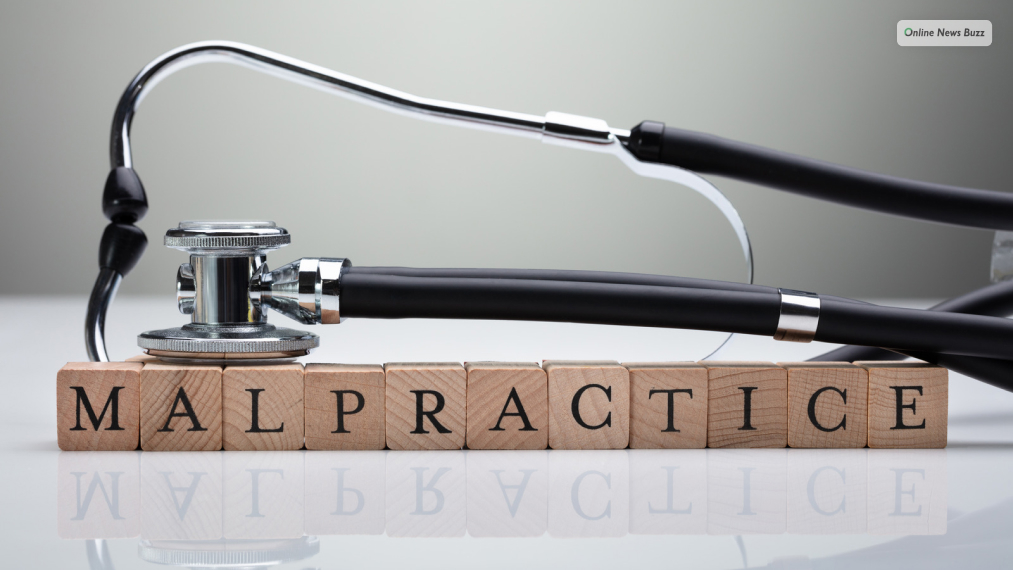
It’s easy to assume that doctors and nurses are infallible, but sadly, medical malpractice continues to occur relatively frequently.
Around $3.5 billion is paid in medical malpractice payments every year, highlighting how many people are affected by negligence or improper conduct. While many people recover from an incident of malpractice, many don’t. Surgical errors are the third leading cause of death in the U.S.
What Is Medical Malpractice?

Malpractice occurs when a medical practitioner acts negligently. This can be because of a positive act, such as performing surgery on the wrong limb, or because of an omission, such as failing to run diagnostic tests.
However, to be legally defined as malpractice, the medical professional’s conduct must fall below the accepted standard of practice in the medical community. In addition to this, it must cause patient injury or death.
If a doctor makes a mistake but doesn’t cause you harm or have any negative consequences, for example, it’s unlikely to be considered malpractice. However, if the error causes a delay in diagnosis, which lessens your chance of survival, the doctor’s conduct or omission may constitute malpractice.
A key issue here is causation. You must show that the medical professional’s negligence caused the harm you are suffering rather than the two situations occurring simultaneously or near one another. To learn more about proving malpractice, look at this Baltimore medical malpractice lawyers article.
Types Of Medical Malpractices

You cannot call any disputes with your health practitioner about medical malpractice.
Take, for example, if a person suffering from a critical illness like cancer or a heart condition dies during surgery. You cannot blame the doctor for medical malpractice because the person previously had a serious medical condition that led to death.
So, you must understand different types of medical malpractice to make the correct judgment when medical malpractice happens. Additionally, you can take the correct steps if you identify medical malpractice.
Furthermore, if malpractice is the third leading cause of death, you need to know different medical malpractices.
Misdiagnosis
Firstly, you have misdiagnosis, one of the most common medical malpractices. Misdiagnosis is when you get diagnosed with the wrong illness or condition, leading to getting different treatment than what you require.
Additionally, a doctor might misdiagnose you with a different condition and provide you with the wrong prescription, which leads to more complications and death.
Delayed Diagnosis
Secondly, if your doctor takes a long time to determine your illness and its cause, it’s a delayed diagnosis. You might suffer further complications when you are left undiagnosed for a long time.
Surgical Errors
Thirdly, you have surgical errors, which happen when doctors do the wrong procedure during surgery, which further damages your health. Additionally, doctors can damage other organs during surgery.
Furthermore, you might get inadequate aftercare post-surgery, and non-sterile equipment used during surgery can lead to infection.
Failure To Treat
Fourthly, you have failure to treat, which is when your doctor correctly diagnoses you with a condition or illness but doesn’t treat you correctly after diagnosis. You might not get the correct follow-up treatment after diagnosis or the right treatment to heal the condition.
Birth Injuries
Fifth, you have another common medical malpractice, which is birth injuries. Your doctor might make a medical error during childbirth, which can lead to several complications.
You might suffer nerve damage, cerebral palsy, dystocia, nerve damage, etc. because of birth injuries.
Prescription Drug Errors
Sixth, medical malpractice is a prescription drug error where the wrong prescription is given to you because of misdiagnosis. You might also order the wrong prescription and get the wrong medication. When you take these wrong medicines, serious complications might affect your health.
Anesthesia Errors
Seventh, you have anesthesia errors, which mainly occur during the surgery process. When your anesthesiologist or doctor errors while administering anesthesia, it can cause lasting consequences.
You might suffer from brain injuries, intense pain, and even death because of anesthesia errors.
Failure To Treat and Prevent Infections
Lastly, you have failure to treat injections or prevent it, which can lead to sepsis, which is life-threatening. If your doctor has done surgery with infected equipment, it can cause infections.
Additionally, you don’t get the correct treatment even after detecting the mistake leading to further complications. In some cases, failure to treat an infection correctly leads to death.
This death was preventable with clean healthcare and proper treatment, which calls for a medical malpractice case against the doctor.
What Are The Consequences Of Medical Malpractice?

You should revoke a doctor’s license if the medical practitioner commits medical malpractice. Additionally, a doctor should face criminal charges in case of medical malpractice.
However, some medical practitioners can retain their licenses and posts, even when they have committed malpractice. Furthermore, the nature, seriousness, and consequences of their negligence will determine what the outcome is for the professional.
For patients, however, the consequences of medical malpractice can be far more severe. You might undergo unnecessary surgery due to malpractice which can lead to further complications.
You will find some examples of medical malpractice consequences listed below:
Firstly, you get the wrong medication from your doctor for your condition that does nothing to decrease your pain instead worsens the condition.
Secondly, you might receive a delayed or incorrect diagnosis which accelerates your illness.
Thirdly, you suffer life-long physical issues due to your practitioner’s negligence in diagnosis. In the most serious cases, patients will lose their lives because of medical malpractice.
In the words of the Haralson County Superior Court, medical malpractice can be a life-threatening issue that can result in death or permanent impairment.
The compensation arising from medical malpractice should be able to cover the treatment expenses and account for lost wages and other costs of the patient/victim.
Have You Been A Victim Of Malpractice?

If you believe that a clinician’s conduct equates to malpractice, there is an action you can take. In addition to making a complaint and reporting their actions or omissions to the relevant licensing board, you can also claim financial compensation.
Although monetary compensation won’t reverse the harm, it can help to ensure that you don’t suffer financially because of the situation you find yourself in. Medical malpractice compensation can also reflect the pain and suffering you’ve experienced.
Making a successful medical malpractice claim can be complex, so you might find it beneficial to access legal advice. With assistance from experienced malpractice attorneys, for example, you can determine if you’re eligible to act and, if so, begin making your compensation claim.
Read Also:




























